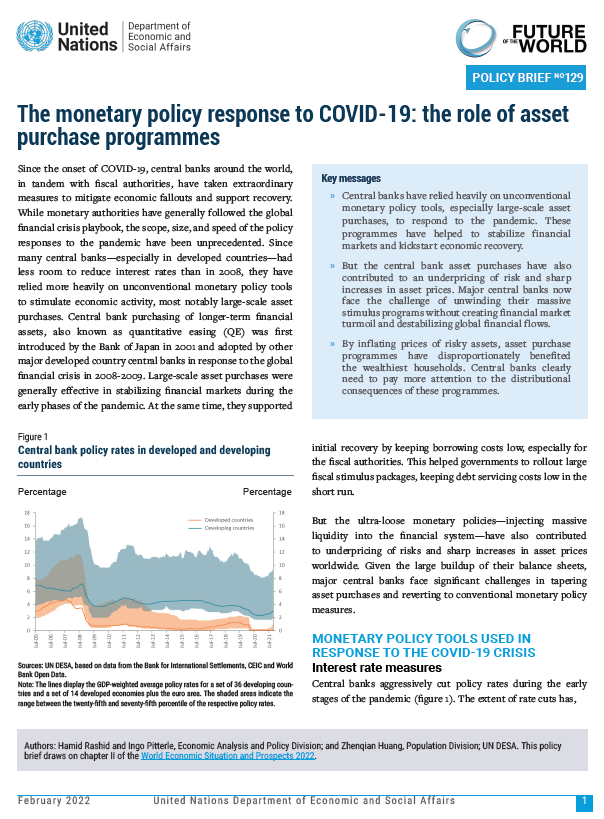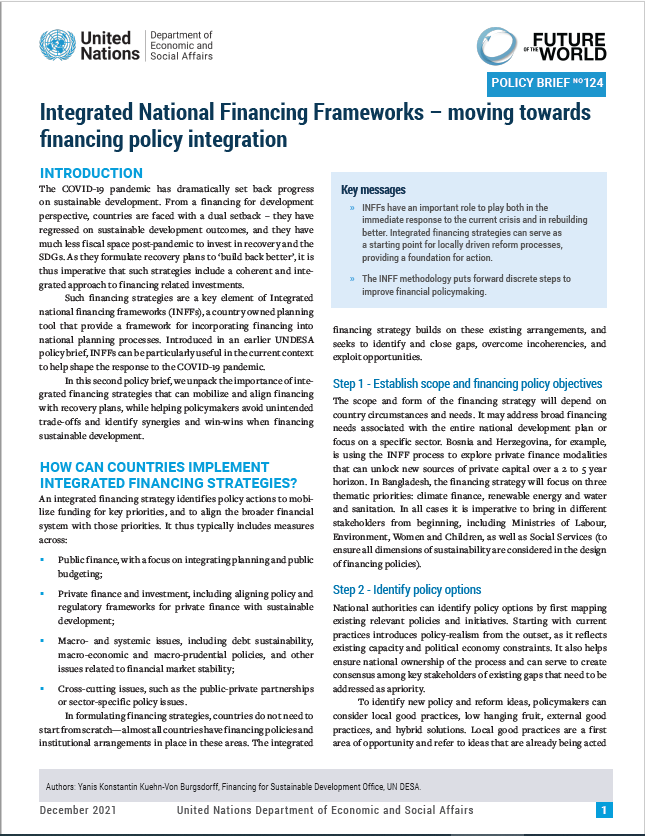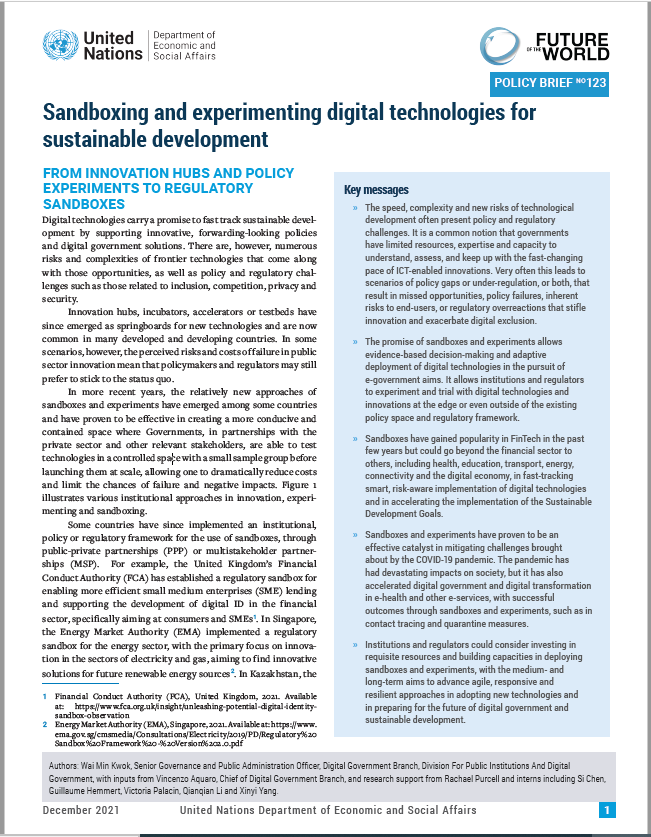Document_GEM: UN DESA Policy Briefs series
UN DESA Policy Briefs series
9 February 2022
Central banks have relied heavily on unconventional monetary policy tools, especially large-scale asset purchases, to respond to the pandemic. These programmes have helped to stabilize financial markets and kickstart economic recovery. But the central bank asset purchases have also contributed to an underpricing of risk and sharp increases in asset prices.
2 February 2022
Climate change is one of the most pressing issues of our times. Sports plays an important role as part of the solution.
14 January 2022
Countries are urged to implement the UN Legal Identity Agenda model as matter of priority to establish the necessary interoperability between various government’s components for effective monitoring and assessing impacts of policy decisions.
14 January 2022
Documenting more evidence around post-COVID 19 transport measures can provide useful references in revamping transport systems.
5 January 2022
Regulators and other market participants have introduced a variety of mandatory and voluntary approaches to help investors align investments with sustainability goals.
5 January 2022
INFFs have an important role to play both in the immediate response to the current crisis and in rebuilding better. Integrated financing strategies can serve as a starting point for locally driven reform processes, providing a foundation for action.
3 December 2021
Institutions and regulators could consider investing in requisite resources and building capacities in deploying sandboxes and experiments, with the medium- and long-term aims to advance agile, responsive and resilient approaches in adopting new technologies and in preparing for the future of digital government and sustainable development.
16 November 2021
The COVID-19 pandemic has posed new demands on development cooperation in its various forms: finance, capacity support, policy change and multi-stakeholder partnerships. The ongoing challenge of the pandemic and its consequences has also shown the durability and adaptability of development cooperation.
12 November 2021
The third Forum, held in Bern, Switzerland, in October 2021 brought together over 700 participants in person and over 7,000 virtually, representing a diverse group of stakeholders from the data and statistics community, joining from over 180 countries around the world. The Forum discussions stressed the need for greater collaboration and coordination for inclusive data to leave no one behind; increase financial support; enhance the capacities of National Statistical Offices; and promote greater inclusion of, and access by, marginalised communities.



















Follow Us